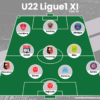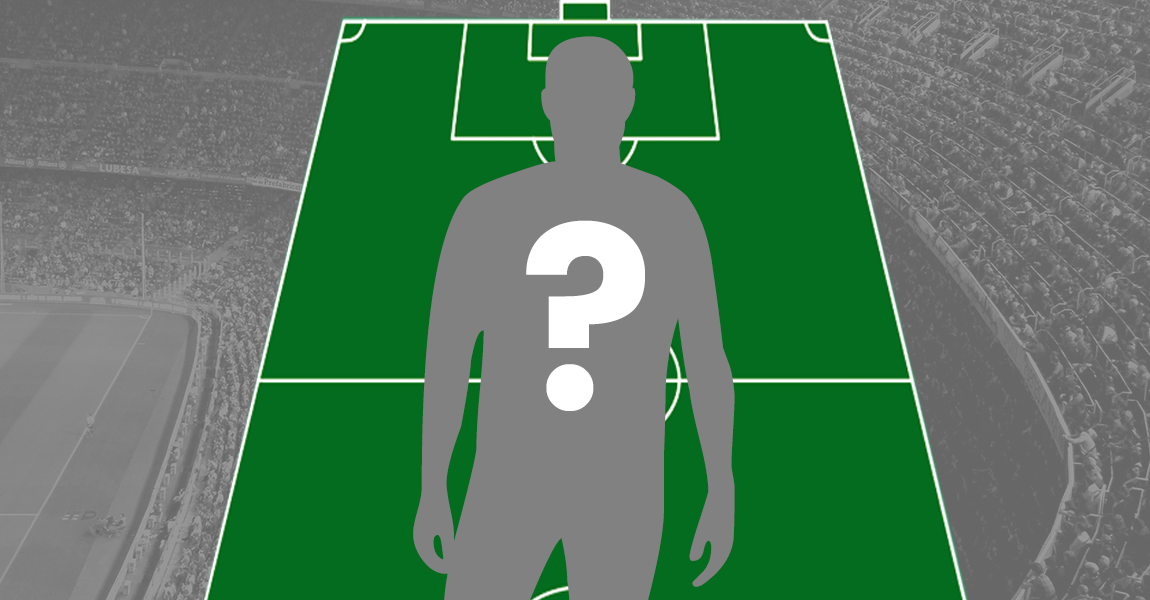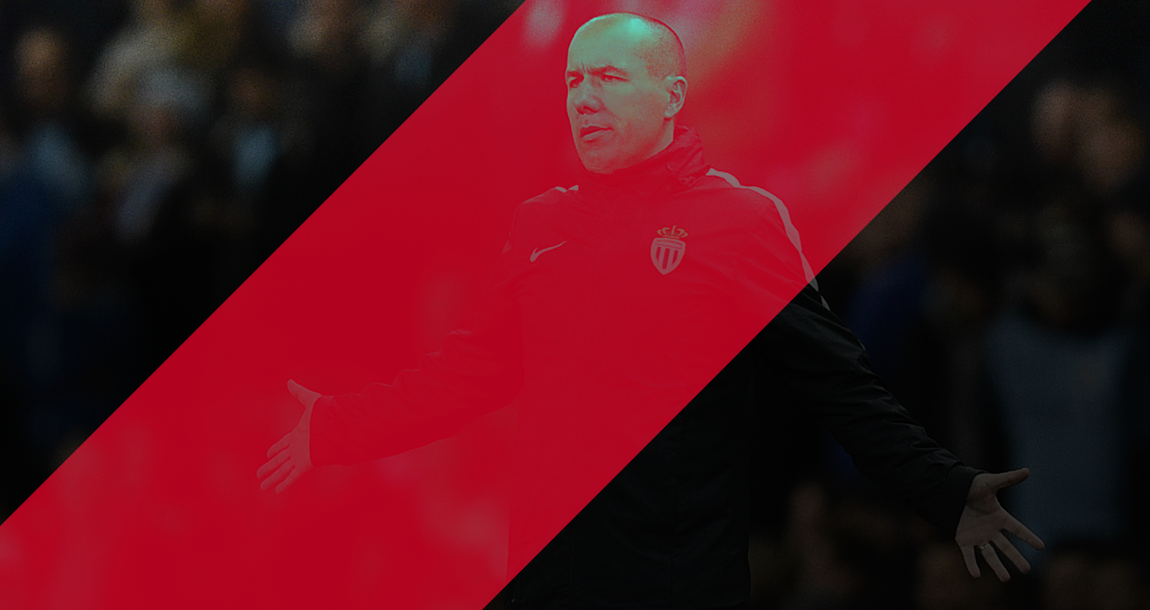The past few years saw an influx of quality players in to Monaco’s squad. While the shiniest of the their gems may have departed, João Moutinho stayed put with the club that was expected to compete with the financially backed PSG. Eric Devin talks about Moutinho, and they way he has been used in the past and present at the French-registered club.

While only 40, Leonardo Jardim has been in charge of top-flight clubs across Europe for more than five years, with success in Portugal, Greece, and Portugal again. He has brought to Monaco a reputation not only for resolute defense, a relative necessity in low-scoring Ligue 1, but also for a lack of longevity, having never lasted more than two season at any one club. Despite these challenges, his turnabouts with Sporting Club de Portugal and Braga in Portugal were impressive, significantly improving both clubs without much in the way of financial backing. On this evidence, it is easy to see why Monaco plumped for the young manager, despite his relative lack of experience in Europe (at least compared to his predecessor, Claudio Ranieri). However, seventeen matches into the league season, things have gone considerably awry, even taking into account the departures of Radamel Falcao and James Rodriguez.
While two of Monaco’s three marquee signings from the summer of 2013 have departed, Joao Moutinho remains, and one of the issues confronting Jardim is how to get the best out of his countryman. Moutinho’s best season in Portugal, including his time at Sporting prior to arriving at Porto, was probably 2012-13, as he notched an impressive 12 assists in the league, playing on the left of a three-man midfield in an attack-minded 4-3-3 with Lucho Gonzalez and Fernando. Under the stewardship of Vitor Pereira, Porto advanced to the first knockout round of the Champions’ League, playing admirably in defeat against Manuel Pellegrini’s Malaga, in addition to edging Benfica for the title in an undefeated league season. Moutinho was named the club’s player of the season, and it seemed as if bigger things were inevitable for the pint-sized midfielder, as rumors of interest from Tottenham swirled. Instead, AS Monaco’s riches brought the playmaker and teammate James Rodriguez to the Riviera in what seemed a smart move, as the financial limitations in effect at Porto (Moutinho himself had his rights partially owned by outside investors at one point) seemed a bulwark against any real success in European competition, and the acquisitions of the pair and Radamel Falcao seemed a real statement of intent.
While the first top-flight season of Dmitry Rybolovlev’s “project” ended as well as could be expected for Monaco, with the club finishing second to Paris Saint-Germain and securing direct qualification to the Champions’ League Group Stage in the process, Ranieri’s use of Moutinho meant that the new acquisition was rarely in the spotlight. The Italian preferred to utilize a rather unorthodox 4-3-1-2/4-4-2 diamond, with James Rodriguez acting as a natural playmaker behind a front two of some combination of Falcao, (when fit) Valere Germain, Emmanuel Riviere and, after his arrival from Fulham, Dimitar Berbatov. The young Colombian used the space created by the two target men to great effect, notching nine goals and 13 assists, and earning a spot in the UNFP Team of the Year. The team’s performances as a whole in the league rarely sparkled, but the fact remained that Monaco had come second and accomplished what they had set out to do.
Moutinho, playing out of position on the left, did, to his credit, manage six assists, but three of these were from dead ball situations, one was down to the absurd technique of Berbatov,one was a speculative long ball that caught Bastia’s defense napping, and one was more down to a lengthy run from Germain. Moutinho’s greatest asset, the ability to deliver a slippery pass at just the right moment for a pacey attacker such as Jackson Martinez or Sylvestre Varela to run on to, was nowhere in evidence last season, and seeing his talent wasted as he did the yeoman’s work opposite Mounir Obbadi and Geoffrey Kondogbia made one wonder if his inclusion in the team was purely financially motivated. Even when attacks did come from Moutinho’s side of the pitch, rather than centrally, they were more often the work of left back Layvin Kurzawa, whose development was impressive indeed last season, his antics with France’s U-21 squad notwithstanding. Granted, there is no shame in being relegated to a different role as a talent of Rodriguez’s level occupies one’s preferred position on the pitch, but Moutinho must surely have wondered why he had bothered leaving Portugal, despite the team’s success as a whole, as his creative abilities largely had gone unused.
Fast forward to this season, and thus far, Jardim has employed a variety of formations, including a 4-2-3-1, a 4-4-2 with a double pivot and (most often) that same 4-3-3 that Pereira employed with Moutinho at Porto. With the countryman familiar with his talents from his time in the Portuguese league set to take charge, his creative rival having departed, and a chance to re-establish himself in his preferred system, Moutinho must have looked at this season with eager anticipation, especially after a dismal World Cup. Thus far, however, Monaco have struggled going forward and at the back, as Jardim’s bizarre personnel choices in employing this system have stymied the side’s implementation of it to its full potential.
As previously mentioned, a 4-3-3 is at its best when the front three are quick and good with the ball at their feet, to facilitate quick interchange of play amongst each other. Barcelona under Pep Guardiola would be the best example of this, as none of Lionel Messi, David Villa or Pedro would be considered a proper striker, but all had no problem finding the back of the net. I am not by any means suggesting that the level of talent at Monaco is comparable, only implying that the system can be devastatingly effective. A “playmaker”-type player may support the front three, from one side or the other of the midfield three, as did Moutinho at Porto, but his ability to do this was down to a relative freedom from defensive responsibility, as the pacey Fernando and Lucho Gonzalez worked well to save his blushes in front of a back four that preferred to play somewhat deep.
This is clearly not the case at Monaco, even as Jeremy Toulalan and Geoffrey Kondogbia are able to support Moutinho by playing deeper, with a deft balance of assuredness on the ball and energy that they respectively offer. However, even when Moutinho is played in his preferred position in his preferred system, Monaco’s struggles persist, for a number of reasons. The most obvious is that Dimitar Berbatov, despite his age and lack of pace, still gets the nod most often up top. Berbatov is admittedly still talented enough to succeed in Ligue 1, but Jardim’s use of him, especially at the head of a 4-3-3, is baffling. The Bulgarian is a rather static player, his movement elegant and precise, lacking in the bustle and energy of players usually employed in the system. Beyond Berbatov’s suitability for a given system, a 4-3-3 wouldn’t seem to get the best of particular talent, as his best years in England were alongside another proper striker, be it Wayne Rooney in Manchester or Robbie Keane at Spurs. Lacina Traore, while seeing more limited action, is essentially more of the same, albeit with a bit more effort. While Germain, Anthony Martial and Yannick Ferreira-Carrasco could fit the profile of wide forwards in the system, their runs into the box are often confounded by the lack of space available to them due to the presence of a slow-footed target man, rendering the system ineffective, a fact illustrated by the fact that Moutinho has yet to record an assist in the league this season.
When Monaco have employed a system other than the 4-3-3, such as in the 1-1 draw against Saint-Etienne, Moutinho does take up a traditional playmaker’s role, but the results have been similarly uninspiring, and smack of tinkering on Jardim’s part to wring the most from his compatriot. Despite the lack of aesthetic appeal of last season’s Monaco, the results were impressive, if overly reliant on Rodriguez for a creative spark. With the lack of new players into the squad (only Tiemoué Bakayoko and Benfica loanee Bernardo Silva have played any significant number of minutes thus far), it begs the question as to why Jardim would try something other than Ranieri’s diamond at all. Yes, the argument can be made that Moutinho is the club’s “best” player in terms of expense and reputation, and should thus be privileged as the focal point of the club’s attack, but looking at statistics thus far this season, Ferreira-Carrasco has scored three goals and made four. Granted, one of the goals was a freak event against Evian, but when extrapolated over a full season, those numbers come close to Rodriguez’s production from last season, from a player who just turned 21, (and hasn’t had the benefit of playing as a no. 10) and easily put Moutinho’s production in the shade. Full of dynamism and able, like his former teammate, to play in any of the three attacking positions behind a striker, the young Belgian has been instrumental in some of Monaco’s best performances this season, and with another superb goal against Lens this week, looks ready to shake off the injuries and lack of form that dogged him through the latter part of last season.
As Lyon and Lille have showed in recent years, while scaling the heights of PSG is impossible without serious investment, trusting in youth can lead to relative success in Ligue 1, with Eden Hazard, Marco Verratti and OL’s current crop of youngsters as fine examples. While a loaded trophy cabinet may no longer be in the cards for Rybolovlev’s Monaco, turning the keys over to players like Ferreira-Carrasco, Kurzawa, Kondogbia, Martial, Lucas Ocampos and others in an attack-mined diamond formation similar to recent vintages of Lyon is certainly more than worth a flyer, especially as there is enough experience about in the form of Toulalan, Ricardo Carvalho, etc. to keep the side properly balanced. If Jardim persists in this 4-3-3 to privilege Moutinho, it will be necessary to call time on both Portuguese, as the combination of young potential and a relatively open league warrant it. With no real risk of relegation, a lack of a clear favourite for third and Marseille’s form just seeming to slip a bit, throwing caution to the wind and trusting in youth may just be Monaco’s best option going forward.
Written by Eric Devin. Read his blog here.

























































